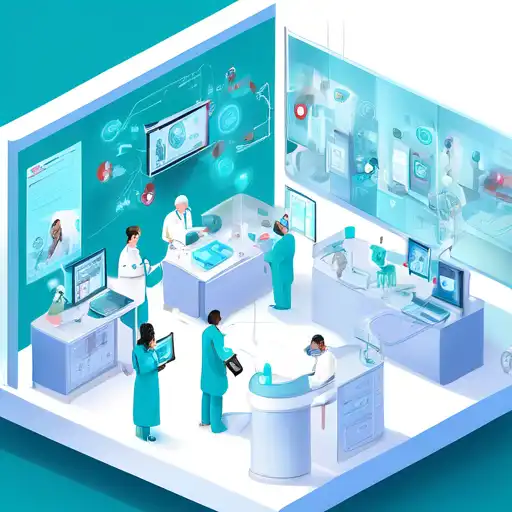Introduction to IoT in Healthcare
The Internet of Things (IoT) is revolutionizing various sectors, and healthcare is no exception. By integrating IoT devices into medical services, healthcare providers can offer more personalized, efficient, and effective care. This article explores the transformative impact of IoT on healthcare services, highlighting key benefits and applications.
Enhancing Patient Monitoring
One of the most significant contributions of IoT in healthcare is the enhancement of patient monitoring. Wearable devices and sensors can now track vital signs such as heart rate, blood pressure, and glucose levels in real-time. This continuous monitoring allows for early detection of potential health issues, enabling timely intervention.
Improving Medication Management
IoT has also improved medication management through smart pill dispensers and connected inhalers. These devices ensure patients adhere to their medication schedules, reducing the risk of missed doses or overdosing. Moreover, they provide healthcare providers with valuable data on patient compliance and medication effectiveness.
Streamlining Hospital Operations
Beyond patient care, IoT is streamlining hospital operations. Asset tracking systems, for instance, help locate medical equipment quickly, reducing downtime and improving efficiency. Similarly, IoT-enabled environmental monitoring ensures optimal conditions in sensitive areas like operating rooms and laboratories.
Facilitating Remote Healthcare
Remote healthcare, or telemedicine, has been greatly enhanced by IoT. Patients in remote or underserved areas can now access quality healthcare services through connected devices. This not only improves healthcare accessibility but also reduces the burden on traditional healthcare facilities.
Challenges and Considerations
Despite its benefits, the integration of IoT in healthcare comes with challenges. Data security and privacy concerns are paramount, as sensitive patient information is transmitted across networks. Additionally, the high cost of IoT devices and infrastructure can be a barrier for some healthcare providers.
Conclusion
The impact of IoT on healthcare services is undeniable. From enhancing patient monitoring to streamlining hospital operations, IoT is paving the way for a more efficient and patient-centered healthcare system. However, addressing challenges such as data security and cost is essential to fully realize its potential. As technology continues to evolve, the possibilities for IoT in healthcare are boundless.
For more insights on how technology is transforming healthcare, explore our articles on digital health trends and the future of medicine.
